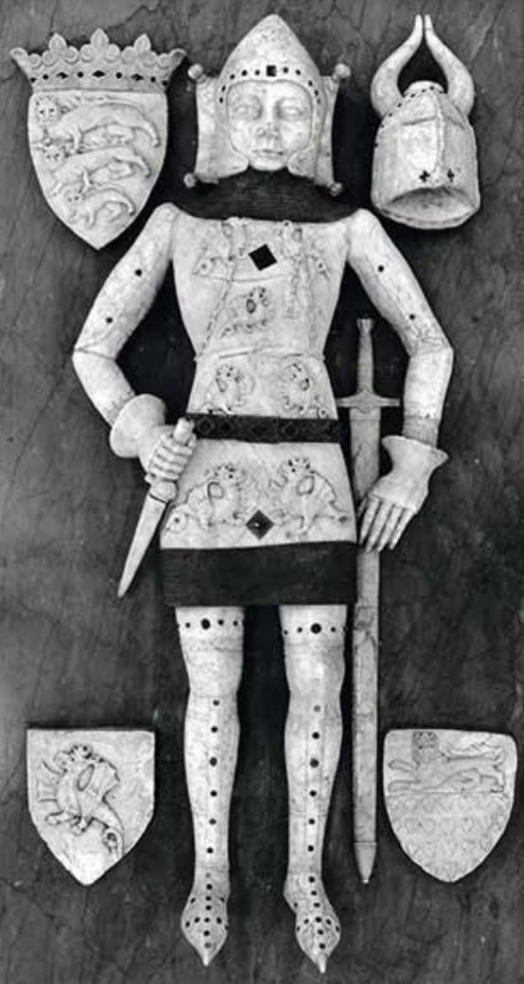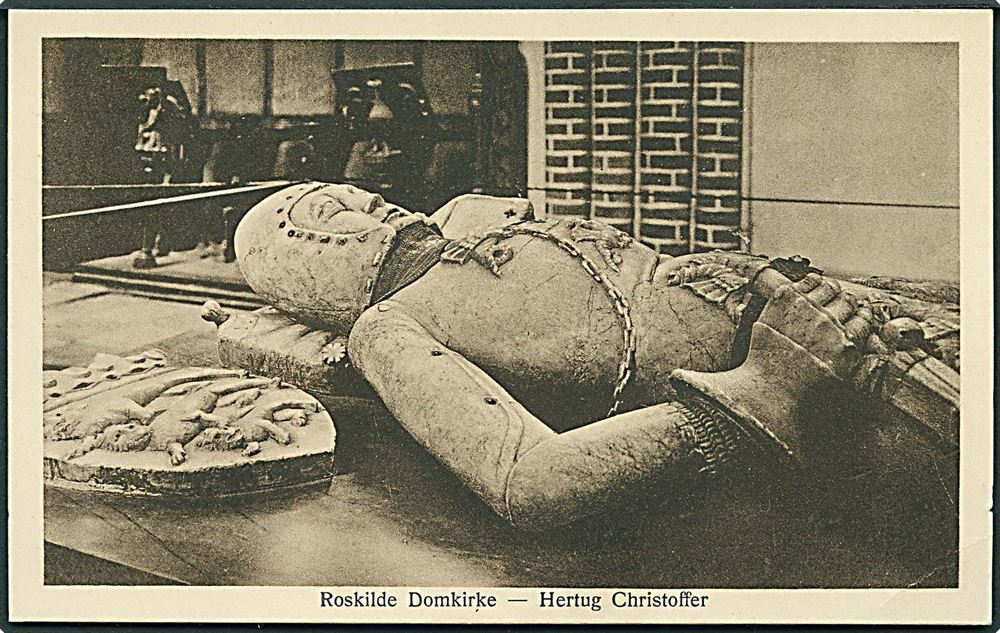
Find the perfect fit with Amazon Prime. Try Before You Buy.
Effigy of Duke Christopher of Denmark
Roskilde Cathedral, Sjælland, Denmark, late 14th century.



Source: Margrete Den Første by Vivian Etting
Dronning Margretes storebror junker Christoffer, døde i 1363, kun 21 år gammel. Han blev gravsat i Roskilde domkirke, og en fornem sarkofag udførtes på Valdemar Atterdags befaling. Her ligger han i fuld rustning med sværd og dolk ved siden og en tøndehjelm med vesselhorn. På et tidspunkt blev sarkofagen flyttet, og alabastfiguren blev i smådele lagt ned i en trækiste. Først i 1879 blev gravmælet atter opsat i koret.
Queen Margrethe's older brother Duke Christopher, died in 1363, only 21 years old. He was buried in Roskilde Cathedral, and a distinguished sarcophagus was created at Valdemar Atterdag's command. Here he lies in full armour with sword and dagger next to him and a barrel helmet with horns. At one point, the sarcophagus was moved, and the alabaster figure was dropped into small pieces in a wooden coffin. It was not until 1879 that the tombstone was restored in the choir.

Top and side views of the effigy of Duke Christopher of Denmark, who died in 1363; cf Plate B/C4. Some aspects of the armour are quite modern, including a bascinet helmet which could have had a 'dog-faced' visor attached at the brow. Beneath a tight-fitting surcoat the duke has a coat-of-plates or perhaps breast- and back-plates. The leg armour is also typical of this period, but the arm defences lack couters for the elbows and appear rather simple, if not old-fashioned. (in situ Cathedral, Roskilde, Denmark)
Source: pp.40-41, MAA - 399 - Medieval Scandinavian Armies (2): 1300-1500 by David Lindholm and Angus McBride
Photo by Orf3us
His tomb was originally commissioned in Central Europe, and depicts the alabaster effigy of a young knight in full armor studded with jewels and surrounded by the heraldic shields of Denmark, Halland and Lolland. The tomb is empty as the prince is probably buried beneath the church floor. The alabaster tomb visible today was restored in 1879 by sculptor Vilhelm Bissen from fragmentary pieces after being destroyed during the Reformation.
